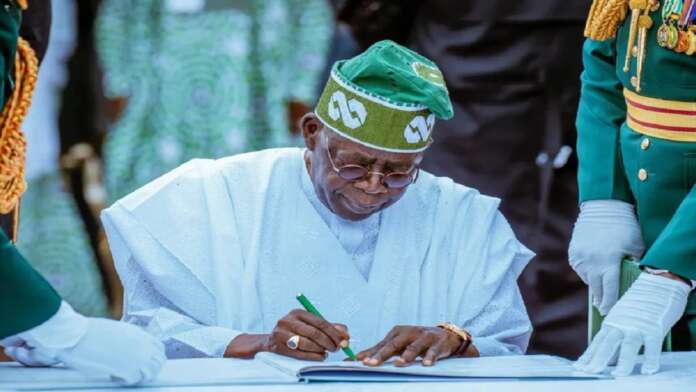By Dr. Tonye Clinton Jaja
“The famous quote, ‘I found Rome a city of bricks and left it a city of marble,” is attributed to the Roman Emperor Augustus, signifying his significant architectural and infrastructural improvements to the city during his reign.”
Similarly, President Bola Ahmed Tinubu (PBAT) will be judged by whether he left both Nigeria and ECOWAS in better conditions than he found both of them as of May 29, 2023.
In terms of Nigeria’s public debt profile, as of September 2024, it was reported that Nigeria’s “external debt rose by N22.77trn within 10 months of Tinubu’s administration”.
In terms of the Economic Community of West African States (ECOWAS), it is during PBAT’s tenure that three West African countries (namely Mali, Burkina Faso, and Niger) have broken away from the ECOWAS.
These are not positive signals at all, considering that it was in July 2024 when it was reported that:
“President Bola Tinubu has been re-elected as the Chairman of the Authority of ECOWAS Heads of State and Government.
The President’s mandate was extended at the 65th Ordinary Session of the Authority of ECOWAS Heads of State and Government on Sunday in Abuja, following the decision of the leaders to ensure continuity and consistency in meeting targets on security, reconciliation, and development.
President Tinubu was first elected to the position in Guinea-Bissau on July 9, 2023.”
PBAT plays a pivotal role, and his actions as Chairman of the ECOWAS Authority of Heads of State are important to resolving the transition challenge in The Gambia, which is a member of the ECOWAS.
To conclude, below is a succinct report of the said challenge:
“ECOWAS is still pivotal to steadying The Gambia’s transition
Divisions over the latest draft constitution, which extends executive power and term limits, necessitate ECOWAS’ involvement.
Eight years ago, the Economic Community of West African States (ECOWAS) helped end over two decades of dictatorship in The Gambia, setting the stage for the country’s transition to democracy. Today, ECOWAS’ active support remains critical to stability in The Gambia.
In December 2016, then-president Yahya Jammeh’s refusal to accept electoral defeat led to mediation and the threat of military intervention by ECOWAS. With support from the African Union (AU) and the United Nations (UN), these efforts saw Jammeh’s departure and the inauguration of President Adama Barrow in January 2017.
At the core of the country’s transition and stabilisation is revising the 1997 constitution to enable important institutional reforms that will redefine The Gambia’s politics and governance frameworks. This process is also key to the country’s security sector reform and transitional justice efforts, particularly in meeting the needs of victims of Jammeh’s rule.
But, although the political and civil spaces have become less restrictive under Barrow’s administration, constitutional reform remains elusive.
The revised constitution is silent on whether or when the presidential term limits clause will apply to Barrow
Disagreements among political actors persist over the new draft constitution. The National Assembly rejected the draft in 2020, resulting in a five-year stalemate. The government published a revised version in August 2024, which has been criticised by opposition parties and civil society.
Dubbed the ‘Barrow Constitution, it is silent on whether or when the clause on presidential term limits will apply to Barrow. Unlike the 2020 version, the latest draft strengthens executive power by removing clauses requiring parliamentary approval of ministerial nominations and appointments to key state institutions. The draft retains presidential power to appoint five National Assembly members.”





